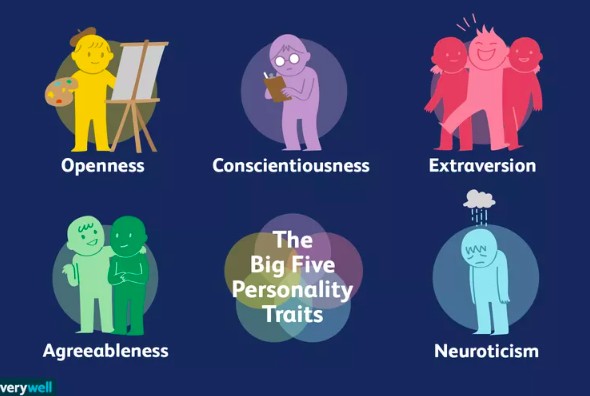The Impact of Personality on Heart Health
Could our character and the way we react to life's difficulties affect the proper functioning of the heart? Although stress has been associated with the occurrence of heart disease, newer evidence also points to the role of personality that could trigger negative emotions.
Link Between Neuroticism and Premature Heart Aging
According to a recent study, published in the European Heart Journal – Cardiovascular Imaging, people who tend to be more anxious and irritable may be unwittingly contributing to the premature ageing of the heart. Experts say that the findings show that people most at risk of mental health conditions could benefit from greater support in an effort to reduce the chance of developing heart disorders in the future.
Exploring the Big Five Personality Traits
The Big Five personality traits, also known as the five-factor model, are a set of five broad dimensions used to describe human personality. These traits are:
- Openness to Experience: Reflects a person's appreciation for art, emotion, adventure, curiosity, and variety of experiences. Open individuals are intellectually curious, creative, and willing to try new things.
- Conscientiousness: Indicates a tendency to be self-disciplined, organised, and achievement-oriented. Conscientious individuals are reliable, responsible, and focused on their goals.
- Extraversion: Characterised by sociability, assertiveness, and positive emotionality. Extraverts are outgoing, energetic, and enjoy social interactions.
- Agreeableness: Reflects a person's concern for social harmony and interpersonal relationships. Agreeable individuals are compassionate, trusting, and cooperative.
- Neuroticism: Represents emotional instability and a tendency to experience negative emotions such as anxiety, anger, or depression. Neurotic individuals may be more prone to stress and have difficulty coping with adversity.
Each of these traits exists on a continuum, and individuals may exhibit varying degrees of each trait. The Big Five model provides a comprehensive framework for understanding and studying personality differences, behaviour, and psychological well-being among individuals.

Investigating the Link: Neuroticism and Heart Function
To investigate the link between mental health and heart function, the research team led by Queen Mary University of London looked at heart scans from 36,309 people, members of the UK Biobank database. With a personality questionnaire that examines the five personality traits (Big Five) – conscientiousness, receptiveness, extroversion, neuroticism and openness – they arrived at the participants classified as “neurotic” who exhibited mood swings, anxiety, irritability and sadness.
They found that a greater tendency toward this personality trait was associated with "smaller and less functional ventricles with lower left ventricular mass, higher myocardial fibrosis, and arterial stiffness." This relationship was found to be independent of traditional risk factors for heart problems, such as smoking and obesity, and was stronger in men compared to women.
Looking Ahead: Future Research Directions
"We know there are important links between mental health and cardiovascular outcomes, and our study revealed that harmful changes in the heart are seen in people with neurotic personality traits such as anxiety, depression and excessive worry. In fact, even when lifestyle factors such as smoking, weight and age are taken into account, neurotic traits appear to be associated with signs of heart aging," adds Steffen Petersen, professor of cardiovascular medicine at Queen Mary University of London.
The professor points out that his team will now seek to understand how these personalities affect heart function and heart disease risk in the long term.
"This study highlights the need for healthcare professionals to be aware that patients who may be at risk of mental health conditions may benefit from support to help reduce their risk of developing heart disease. With mental health diagnoses becoming more common, we hope that future research will further explore these relationships," concludes Dr James Leiper, deputy medical director at the British Heart Foundation.

Read also Heraklion Municipality, Crete, Borrows 27 Million Euro to Cover Budget Deficit


